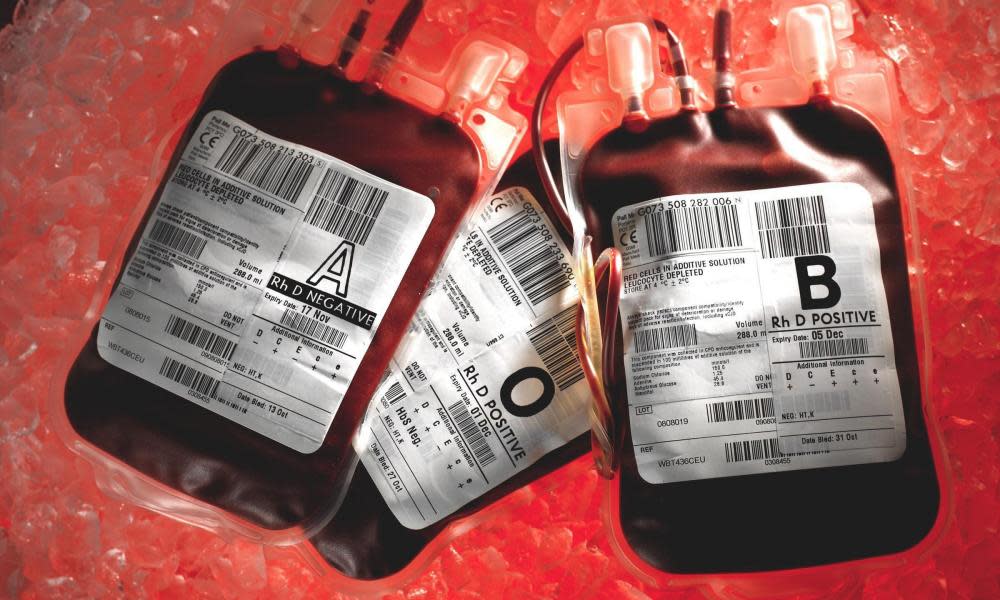UK to trial coronavirus treatments using blood from survivors

Health officials have prioritised two clinical trials that will be supplied with blood from recovered Covid-19 patients in the hope that transfusions can help save the lives of people hospitalised with the infection.
NHS Blood and Transplant (NHSBT) has started to collect blood from recovered patients with a view to using the antibody-rich serum to boost the immune systems of patients struggling to overcome the virus.
The limited supply of convalescent plasma will be given to patients enrolled on sub-studies in the Recovery trial led by Peter Horby at the University of Oxford, and the Remap-Cap trial led by the Intensive Care National Audit and Research Centre (ICNARC) in London.
The Recovery trial will assess whether the plasma helps patients to recover before they are admitted to intensive care, while the Remap-Cap trial will investigate whether similar transfusions help to save patients who are already in high-dependency or intensive care units.
At least one trial that was designed to assess whether the plasma could protect healthy people who are in close contact with Covid-19 patients, such as NHS staff and family members, was rejected by NHSBT amid a shortage of the donated serum.
Plasma is the fluid that holds white and red blood cells in suspension and is of vital importance to its recipients for various medical needs. Its components, including antibodies, are the raw material for the production of life-saving medications used every day in emergency rooms and hospitals to treat immune diseases, stop bleeding, and save babies born to Rh-negative mothers.
Convalescent plasma therapy dates back more than a century and was used in the 1918 Spanish flu pandemic. The treatment relies on the presence of antibodies that provide some level of immunity to patients who have recovered from the virus. The most effective transfusions contain high levels of antibodies that can, in principle, boost the recipient’s immune defences for weeks.
Doctors in China used convalescent plasma as an emergency therapy when the outbreak was raging on the mainland, and while early anecdotal evidence suggests it may have helped, formal clinical trials are needed to determine whether the intervention is really safe and effective, and that patients would not have recovered as well without it.
In the US, where the number of reported coronavirus cases is greater than in any other country, doctors have rapidly expanded a trial of convalescent plasma which has been given to hundreds of patients.
NHSBT is seeking blood donations from patients aged 17 to 66 who recovered at least 28 days ago, the time it takes to be certain that persistent antibodies are in the bloodstream. Donations can be made at 23 centres across England.
Prof Sir Robert Lechler, the president of the Academy of Medical Sciences and executive director of King’s Health Partners, which includes King’s College London and three major London hospitals, is keen to trial the therapy and has been contacted directly by recovered patients who want to know how to donate their blood.
“Convalescent plasma transfusions are not a silver bullet solution for the coronavirus health crisis; however, they do have the potential to be hugely beneficial. The US has charged ahead with this. They have already treated 500 patients with convalescent plasma, and although it is much too soon to know the results, anecdotally it has helped patients recover.”
Beyond the therapeutic uses being looked at in the trials, if the transfusions are found to be safe and effective, and if the supply from donors allows, the plasma could also be used in care homes to prevent people who test positive from developing the most serious form of the disease, he said. “There is an urgent need for this kind of intervention. Let’s hope we can start treating patients with this very, very soon.”

 Yahoo News
Yahoo News 
